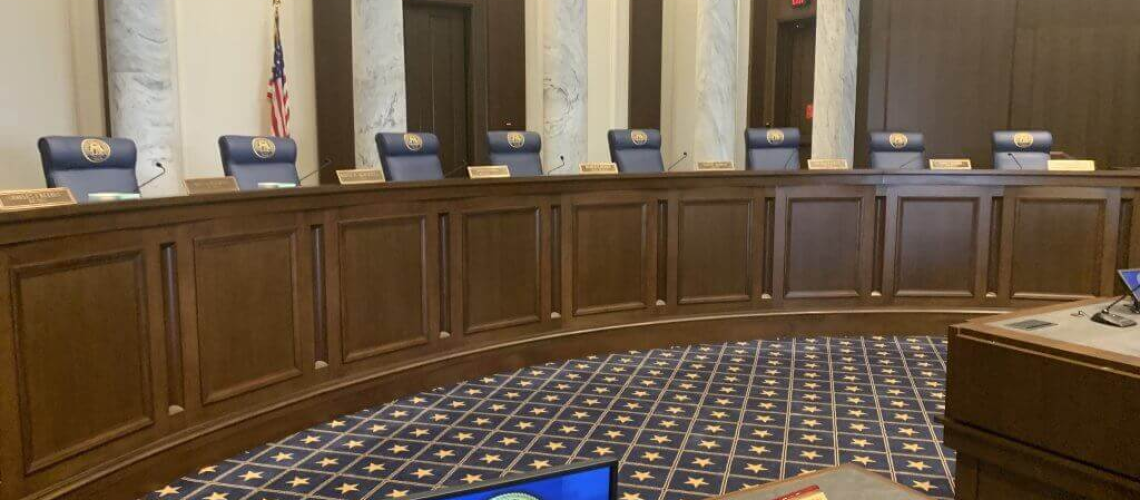Traditionally, a lawyer is someone who has gone to law school and graduated Then they have to take the bar exam in their state and pass, they can be referred to an attorney. This distinction—typically earned through four years of undergraduate school, three years of law school, and passing the bar exam—has been lost to time.
Like any profession, the real litmus test of knowledge comes not just from when a person proves themselves capable of attending and graduating from school. Nor does it come after they take their professional exam and pass. The real differentiator is time. Who would you trust more? A doctor who hasn’t completed their residency or one with countless hours inside of the ER?
That same distinction is present in the legal profession. One sign of serious experience is arguing before a supreme court. Most attorneys won’t be able to say that they have had the chance to defend their clients before the highest body of judicial authority in Georgia.. Here at Arora Law, we have argued before the state’s high court over a dozen times as well as in the high courts of other states. But, first,how does a state’s supreme court work and, what does it mean to ‘argue before the supreme court?”
How does Georgia’s Supreme Court Work?
The Supreme Court of Georgia has the responsibility of hearing specific types of cases and reaching decisions on those cases. The supreme court hears appellate decisions meaning they take on cases which have been previously examined by lower courts, on average, 2,000 cases annually. The court is obligated to review cases involving the death penalty, murder convictions, etc, as well as questions referred to it by either the Court of Appeals of Georgia or the federal courts. These referrals often seek clarification on certain aspects of Georgia law.
Appealing before the state’s supreme court
An appeal is different from a trial. During a trial, witnesses provide testimony and a jury is instructed by the judge to determine guilt or innocence..
If a criminal defendant is unhappy with the outcome of a trial, they can petition for an appeal. The focus will shift to hearing arguments regarding the correct applications of legal rulings that were made during the trial.
For most cases to reach the docket of the state’s supreme court, they must pass first through the other levels of the state’s appellate judiciary.
How Does Georgia’s Court System Work?
There are 8 different courts within the framework of the state’s judicial system. At the bottom of the hierarchy there are 5 courts: the municipal courts, magistrate courts, probate courts, state courts, and juvenile courts. We’ll get to how they work in a second. Above this lies the superior court. Then, the court of appeals. Finally, there’s the Supreme Court of Georgia.
Municipal Courts:
Municipal Courts deal with traffic violations, ordinance violations, and criminal preliminary hearings. There are no jury trials at this level. Thus, these courts can’t impose sentences of longer than 12 months and/or fines of over $1,000 per individual offense.
Magistrate Courts:
Magistrate Courts oversee a range of civil and criminal cases. The court deals with issues such as Abandoned Motor Vehicles, Dispossessory (Landlord-Tenant) Actions, Small Claims, Garnishments, Weddings/Marriages, and Personal Property Foreclosure. It also takes on matters like criminal warrant applications, first appearance hearing and preliminary hearings.
There are also no jury trials before the magistrate courts.
Probate Court:
This court holds exclusive jurisdiction over several important matters, including probate of wills, administration of estates, appointment of guardians, involuntary hospitalizations, issuance of marriage licenses, and granting of weapons carry licenses.
Juvenile Court:
Juvenile Courts hear cases related to those under 17 years of age. This includes all criminal behavior and traffic violations. All trials in juvenile courts are only before a judge.
State Court:
State Courts hear criminal misdemeanor cases including traffic violations and civil matters not reserved exclusively for the Superior Court. Jury trials in state court only require six jurors.
Superior Court:
Superior Court Judges preside over a wide range of legal matters, including misdemeanors and felonies, contract disputes, premises liability, and numerous other legal actions. Furthermore, this court holds exclusive jurisdiction in equity cases involving divorce, title to land, and felonies that require jury trials, such as cases involving the death penalty. Jury trials in the superior court are the traditional 12 person juries.
Most criminal defendants who are facing felonies and tried before the Superior Court, if they are convicted, have the right to appeal to the Georgia Court of Appeals and in some cases can go directly to the Georgia Supreme Court, e.g. death penalty or murder convictions.
Atlanta-Based Appeal Attorneys
If you have been convicted of a crime in Georgia, the consequences are severe and it is crucial to seek the assistance of skilled appellate attorneys. At Arora Law, we have the expertise, knowledge, and commitment to protect your rights, challenge the conviction, and fight for the best possible outcome.










